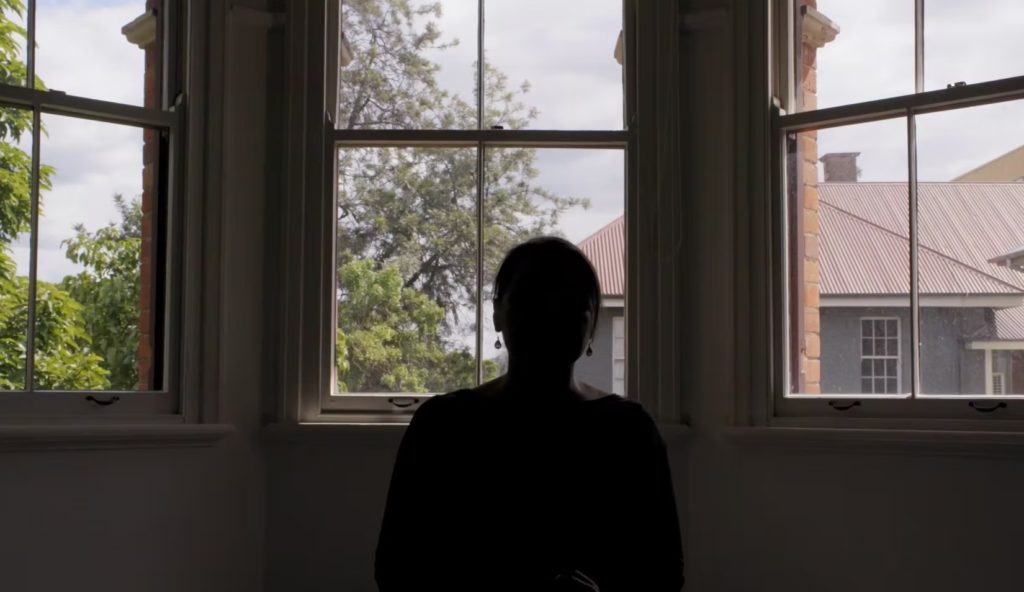

Two Australians die from DFV every week. In many cases, the deaths occur when the victim is trying to flee the violence and take shelter elsewhere.
In 2016, the Qld Government began a 10-year program to end DFV, working with various community groups. A large part of the strategy is increasing community awareness.
Property managers are in the unique position of visiting tenants’ homes and are often privy to incidents that occur behind closed doors. Changes in behaviour such as erratic rent payments or sudden lack of communication can indicate that something may be wrong.
This is the time when we, as community members, should take the step and ask the question ‘Are You OK?’.
On a professional level, agents are tasked to assist DFV victims to change the conditions of their tenancies. In 2020, a review of tenancy laws has added to protections towards DFV victims which are outlined below:
These temporary provisions have been extended to September 3oth 2021, and it is our hope that they will become permanent legislation.
Ending DFV and other abuse is a community responsibility.
Let’s stand up and say ‘Not Now, Not Ever, Together.’


Since the end of 2019 Laura and David have been working hard to help Domestic and Family Violence survivors in the rental market and spread DFV awareness and education across the property management industry.
To expand that work and build an Alliance of like-minded partners, they have created SafeHome Alliance because everyone deserves a safe place to call home.
Please visit the SafeHome Alliance website where you’ll find resources, information and advice for survivors and the broader property industry.
Queensland Government Domestic & Family Violence Prevention Strategy
REIQ & Q Shelter – Resources for Agents & Property Owners
The REIQ and Q Shelter has joined forces to develop a ‘DFV Toolkit’ which outlines strategies for tenancies and provides resources on how to obtain assistance.
Click HERE for the DFV Toolkit
NOTE – See the last page for the 2020 COVID Emergency Response Legislation, which supersedes some tenancy laws regarding DFV victims and has been extended until 30th September 2021.
Commissioned by the Queensland State DFV Prevention Council and Co-signed by our Managing Director Laura Valenti and Tenants Queensland CEO Penny Carr, this was sent to agents across the Moreton Bay Region as part of a local council DFV awareness program.
This is the form that tenants experiencing DFV should use to end their tenancy
This report should be filled out and supplied along with the above Notice Ending Tenancy to provide the evidence needed to ensure a smooth process to ending the tenancy.
Queensland Government – DFV Support
Federal Government – ‘Help is Here’ Campaign
(if you are located in another state)
There are many community groups that can use your assistance – and not just financially.
Just like property managers, you may have the opportunity in your line of work to make a real difference in peoples’ lives.
The brainchild of Sonia Colvin, a hairdresser in Bribie Island, this not for profit organisation takes a proactive approach against domestic violence and elder abuse by harnessing the intimate and trusted relationship between Australia’s 55,000+ hairdressers and their clients.
They believe that by empowering hairdressers with the correct resources and appropriate training they can make a difference in the lives of many Australians – even save lives.
Their vision is to create a world without domestic and family violence through the workplace.
Partnering with Australian businesses since 2001, their proven Workplace Prevention Program empowers businesses to be part of the solution. They help develop workplace policy and educate managers and staff to recognise the signs and respond appropriately.
White Ribbon Australia is a part of a global social movement working to eliminate gendered violence. They strive for an Australian society where all women and children are safe.
White Ribbon is the world’s largest movement engaging men and boys to end men’s violence against women and girls, promote gender equality and create new opportunities for men to build positive, healthy and respectful relationships.
For more than 100 years, Zonta International has contributed to help achieve a world free of violence against women and girls through service and advocacy.
Zonta believes in making the world a better place by empowering women, in a supportive community of like-minded professionals from diverse countries and cultures.
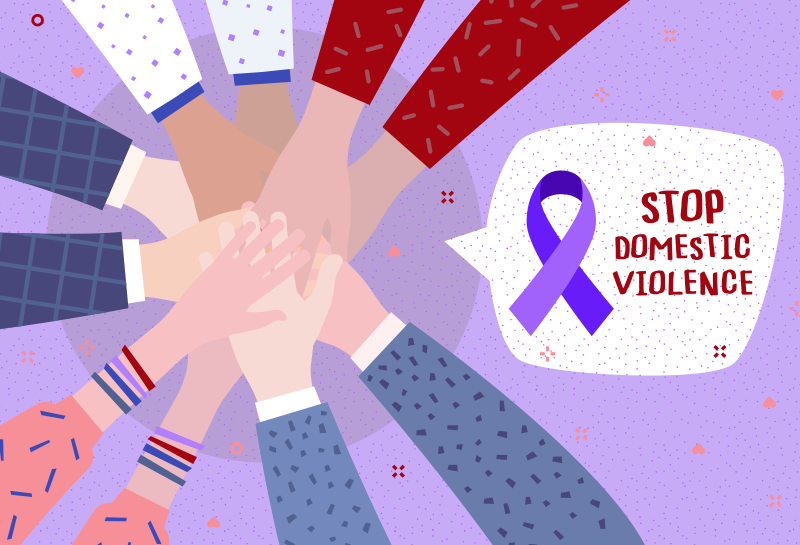
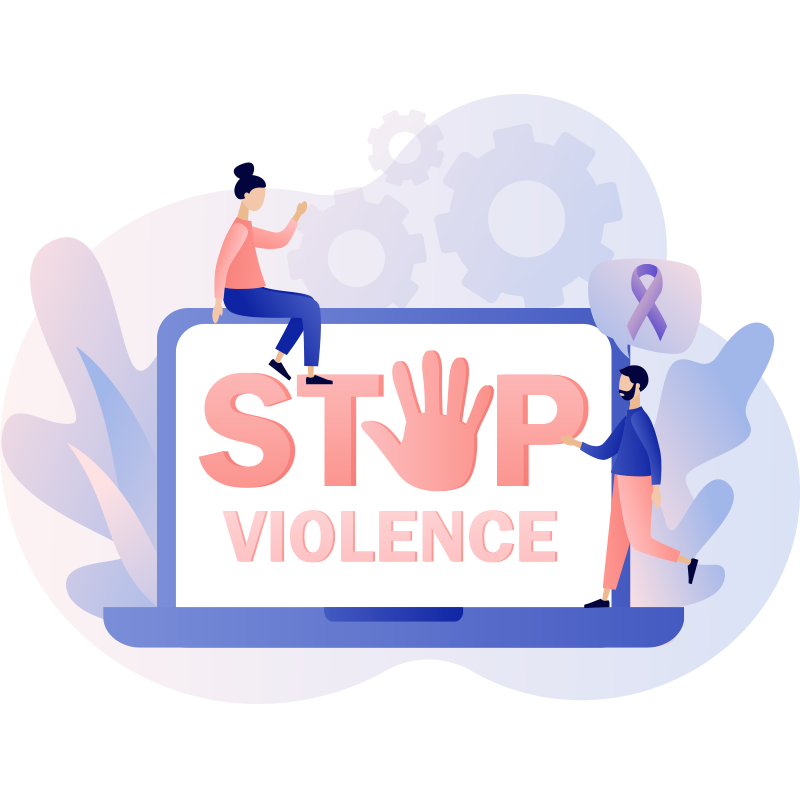
This is a very delicate matter and every caution must be taken if you suspect someone is being subjected to DFV.
The best course of action is to find the opportunity to approach the victim herself and ask open-ended questions like “Are you ok?” or “You seem agitated, can I help you with something?”.
Chances are that the victim won’t confide in you the first few times you ask. But you have planted the seed to let her know that you are there to help – a safe place to go when it’s time for her to tell someone.
You can also provide resources such as numbers to call for assistance. Many DFV victims are not aware of the huge support network of organisations that have been set up to assist victims flee DVF and start new lives.
See the links above for information about these services.
If you are the sole tenant on the lease, you can end your agreement with 7 days notice, as long as you can provide evidence of DVF.
If you are a co-tenant, you can apply to leave the tenancy with seven days’ notice. In this case, the tenancy will continue with the co-tenant in place. You can also apply to have your portion of the Bond money refunded. This should be discussed with your property manager who can facilitate this process.
If you are NOT named on the lease, you are what is called an ‘Approved Occupant’ and as such, you have no responsibility towards the lease agreement.
This means that you can leave at any time.
It is still a good idea to contact your property manager anyway, and advise them confidentially what has happened. Then we can put notes in our file and ensure no personal information is inadvertently handed over to the lease holder.
It is important to understand that all parties must work together to ensure that while the DFV victim is assisted to break free from the cycle of violence, your financial loss is also mitigated.
At the end of the day, it is better for the property owner if a DFV victim is allowed to end her lease and move on, because it allows the owner to start afresh and find replacement tenants instead of expecting rent payments from a tenant who has limited means and is in a crisis situation.
If a tenancy ends due to DFV, we follow the same process as any other vacate. The tenant hands in her keys on the new lease end date, we inspect the property and discuss the bond refund with both parties.
In order to be eligible to end your lease due to DFV, you will be required to provide evidence. This may include a report from your doctor, case worker, or police.
The RTA has a pro-forma DFV REPORT that you can use to make this easier.
You are not obligated to leave this or copies of any documentation with your agent; however, they must be able to sight it as verification.
The more proof you can provide to your agent, the easier it will be for them to bring the matter to the property owner and get the process started.
Domestic & Family Violence is a community responsibility, and as such it is incumbent upon us all to assist victims where possible.
Current tenancy laws state that if a DFV victim wishes to leave a rental property, provided there is sufficient evidence, she only needs to give 7 days’ notice to end the tenancy agreement. Rent is therefore only payable until the end of that 7-day period. This is to assist her seek protection and alternative housing without the financial burden of a continuing lease.
If the DFV victim is a co-tenant, she can claim her portion of the Bond money when she leaves, again in order to free up some funds and to help her move forward. Her bond money may be used as compensation for rent up to her departure; however, it may not be used to repair damages caused by the perpetrator (eg holes in walls, etc).
If your tenant wishes to remain at the property but requires minor modifications to be done to the property such as a change of locks, installation of security camera, more adequate exterior lighting etc, you are required to approve these changes. Costs will be incurred by the tenant, but you must not obstruct these changes.
If a DFV victim leaves the property with a debt such as unpaid rent, we are not permitted to list the tenant on a default tenancy database such as TICA, to enable her to make a fresh start.
If a tenant needs to flee a property due to DFV, and there is a co-tenant named on the lease, the co-tenant is still bound by the lease and must continue to abide by the lease conditions including making the full rent payments.
If the victim leaving the tenancy is due to get her part of the bond back, the co-tenant staying on in the property must make up the difference within 30 days.
The above is applicable whether the co-tenant is the perpetrator or not.
Victims who have escaped DFV are still in danger of further violence if the perpetrator is still at large.
Property owners have an obligation to allow you to feel safe and secure in your rental property and there are many things you are permitted to do as a person fleeing DFV. The following are examples of what you can do (at your own cost), provided you inform your property manger:
Financial assistance for safety upgrades is available from Centre Against Domestic Abuse.
While it is preferable for applicants to inspect the property before accepting it, this is not required.
Those fleeing domestic violence may not have the luxury of time to visit properties, or may be restricted by a controlling partner.
Just fill out an application form advising that you are happy to take the property without viewing it. This will save you precious time and resources.
At ezyAPP, our aim is to make the process of finding a safe rental home as quick and simple as possible. CLICK HERE to find out more.



Imagine if you could help women in your local community in tangible, meaningful ways, plus quickly secure rental agreements for your clients? THE INDISPUTABLE NEED FOR CHANGE Domestic and family violence (DFV) is the leading cause of homelessness for women…

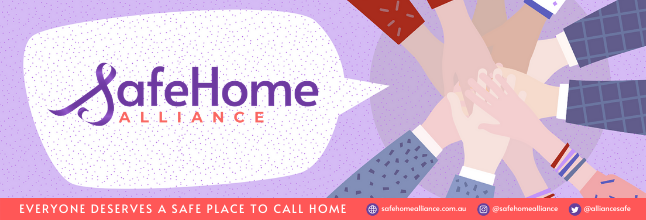
ezyAPP is incredibly excited and proud to be a founding industry Partner of SafeHome Alliance – a Domestic & Family Violence awareness & prevention program created by our very own directors, Laura and David. We believe the property industry can…

In April 2020, the Queensland Government acted quickly to legislate its COVID-19 response for residential tenancies. One temporary provision dealt with Domestic and Family Violence, allowing victims to end their tenancy agreement with just 7 days’ notice. On Friday 30th…

How Rental Agents can assist those fleeing domestic violence. Each May, Queensland marks Domestic and Family Violence Prevention Month. This year’s theme is ‘We all play a part in domestic and family violence prevention’. As managing agents, our role can be…
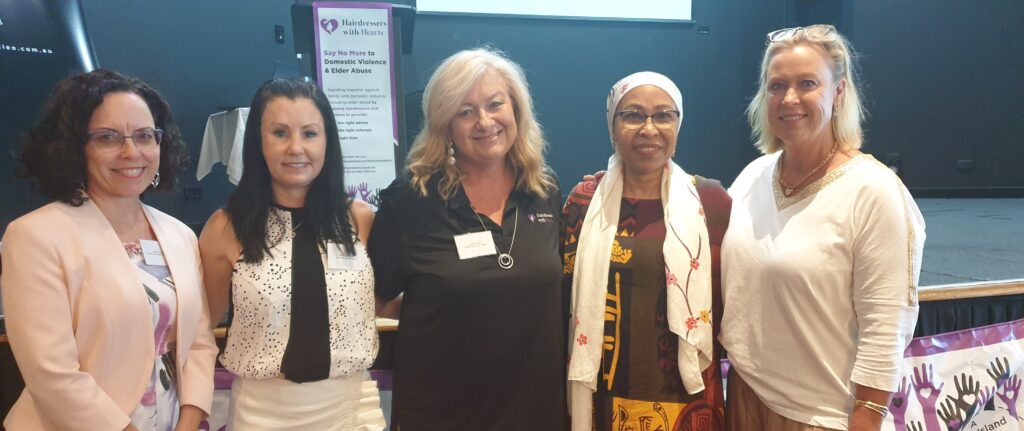
By Laura Valenti – Managing Director, ezyAPP Photo taken at the HwH launch on March 6th. From left: Laura Valenti, Simone O’Brien (DFV survivor), Sonia Colvin (founder of HwH), Faiza El-Higzi OAM (Women’s advocate and MC), Lisa Curry (Olympic champion…

The vacancy rate throughout south-east Queensland continues at record lows, with our current office vacancy rate sitting below 0.2% since November last year. While this is good news for investors, many tenants who would normally have no problem securing a…

Article in Moreton Daily News, March 22nd 2021. Being named the AREA ‘Most Influential Woman in the Property Market’ for 2020 has given North Lakes property manager Laura Valenti a powerful platform to raise awareness of domestic and family violence….
[custom-twitter-feeds screenname=BDVS_au screenname=wlsq hashtag=”#dfv”, #notnownotever”]
© 2025 ezyAPP. All Rights Reserved | Site designed by boxercox
